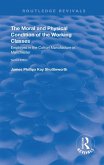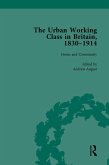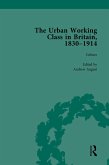The Condition of the Working Class in England is one of the best-known works of Friedrich Engels. Originally written in German as Die Lage der arbeitenden Klasse in England, it is a study of the working class in Victorian England. It was also Engels' first book, written during his stay in Manchester from 1842 to 1844. Manchester was then at the very heart of the Industrial Revolution, and Engels compiled his study from his own observations and detailed contemporary reports. Engels argues that the Industrial Revolution made workers worse off. He shows, for example, that in large industrial cities mortality from disease, as well as death-rates for workers were higher than in the countryside. In cities like Manchester and Liverpool mortality from smallpox, measles, scarlet fever and whooping cough was four times as high as in the surrounding countryside, and mortality from convulsions was ten times as high as in the countryside. The overall death-rate in Manchester and Liverpool was significantly higher than the national average (one in 32.72 and one in 31.90 and even one in 29.90, compared with one in 45 or one in 46). An interesting example shows the increase in the overall death-rates in the industrial town of Carlisle where before the introduction of mills (1779–1787), 4,408 out of 10,000 children died before reaching the age of five, and after their introduction the figure rose to 4,738. Before the introduction of mills, 1,006 out of 10,000 adults died before reaching 39 years old, and after their introduction the death rate rose to 1,261 out of 10,000.
Bitte wählen Sie Ihr Anliegen aus.
Rechnungen
Retourenschein anfordern
Bestellstatus
Storno









